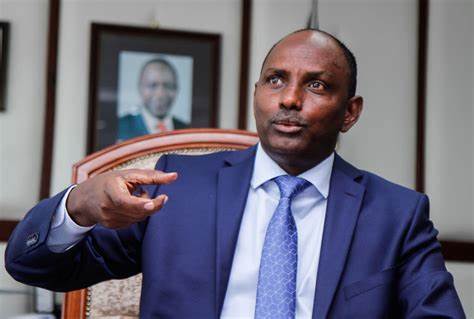In an effort to curb money laundering, Treasury plans to compel second hand car dealers to disclose the identities of customers and their sources of income.
The Treasury also requests that the source of funding for auto dealership owners be investigated, saying that lax enforcement of laws governing the used car market makes the industry appealing to fraudsters and drug dealers.

Ukur Yatani, the cabinet secretary for the Treasury, is requesting a reform of the law so that transactions in the used automobile market may be reported to the Financial Reporting Centre (FRC), which is responsible for tracking illegal funds.
In the evaluation, businesses and individuals like casinos, accountants, and used car dealers will be categorized as non-financial reporting institutions.
To prevent money launderers from using vehicle dealers as front firms to claim the money as legitimate business proceeds, there will be increased scrutiny on the source of the money that car dealers deposit in banks.
The names, residences, dates of birth, ID numbers, and occupations of buyers, as well as the date of the transaction and the sum involved, will all have to be disclosed by car dealers.
Seventy-five percent of new vehicle sales go to assemblers. 90 percent of Kenyan car purchases are imported used cars (107,499 in 2021), which consume almost Sh100 billion in valuable foreign currency annually.
“Car dealers should be designated as reporting institutions for the purposes of reporting money laundering suspicions to the FRC,” said Mr Yatani in a money laundering risks review report.
“The money laundering threat in second-hand car dealerships is rated as medium high due to the weak regulatory controls.
There is a likely increase in the level of threat in the future due to the lack of clear regulations for monitoring the sector.”
Large sums of cash generated by illegal enterprise are difficult to deposit directly into Kenyan banks because of anti-money laundering regulations.
Cash can be sent to money launderers who own or operate auto dealerships by owners of criminal funds.
Finding the source of the funds gets more difficult if the bank receiving the money doesn’t have enough information from the second-car vendor.





